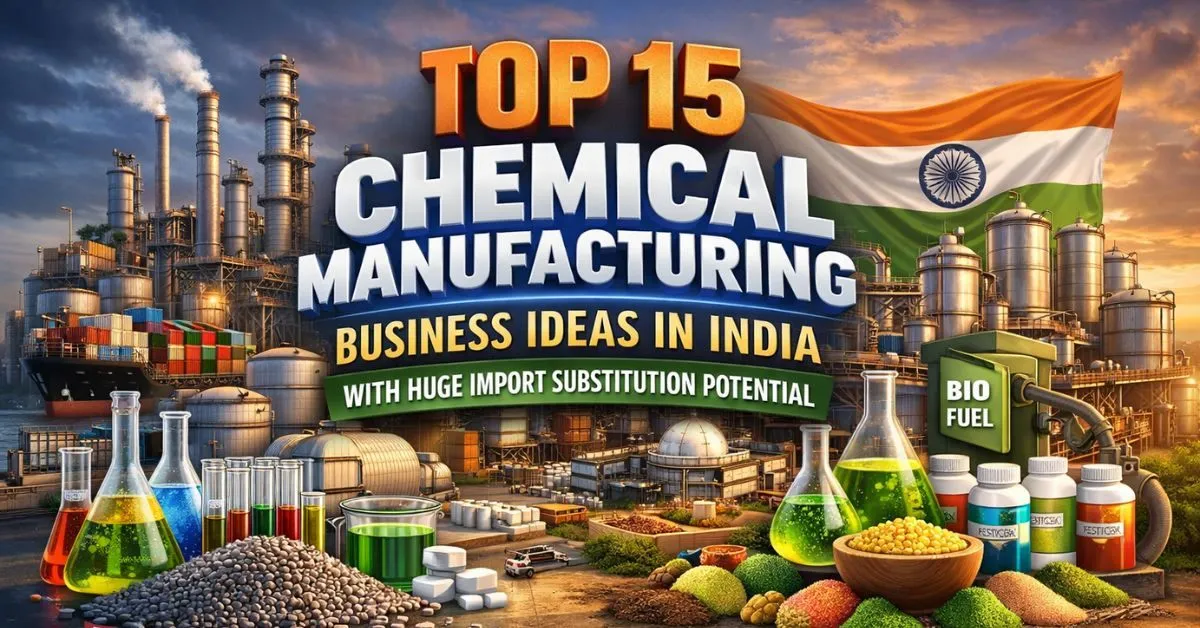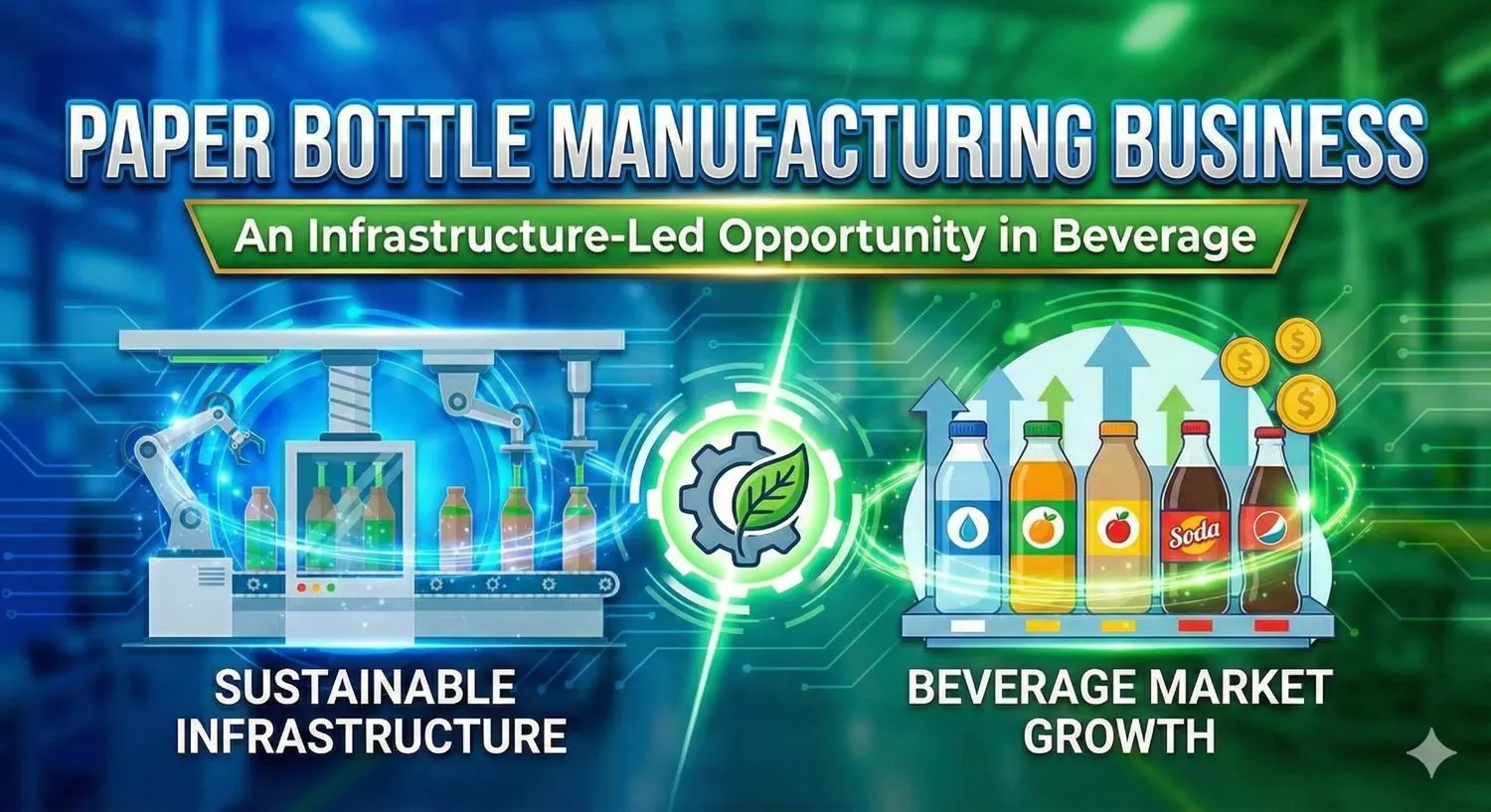Waste management has become one of the biggest challenges in modern times, especially with the growing number of used tyres dumped each year. Fortunately, converting waste tyres into rubber powder presents a sustainable and profitable business opportunity. Entrepreneurs looking to venture into recycling can tap into this booming segment with minimal investment and high returns.
See Also : Mini Atta Chakki Plant
Contents
- 1 Why Start a Rubber Powder from Waste Tyres Business?
Why Start a Rubber Powder from Waste Tyres Business?
India generates millions of tonnes of waste tyres annually, and this number continues to grow with rising vehicle usage. These used tyres pose serious environmental risks when burnt or buried. However, they contain valuable components, especially rubber, that can be processed into usable products.
One such valuable output is rubber powder from waste tyres, which finds application in multiple industries. From construction to sports surfaces and road laying projects, rubber powder demand is increasing steadily. Launching a business in this segment not only supports environmental sustainability but also unlocks an excellent earning potential. Entrepreneurs can set up small-scale or medium-scale plants depending on their investment capacity and regional demand.
To begin with, the raw material is abundantly available and sometimes even free. Local scrap dealers, tyre shops, and municipalities can supply worn-out tyres. The process of turning these into rubber powder involves mechanical shredding, followed by granulation and sieving. The final output is a fine rubber powder ready for industrial applications.
Unlike many manufacturing businesses, this setup doesn’t require highly skilled labor. Most of the work is done using automated machinery. With consistent sourcing and marketing, a rubber powder plant can become profitable within the first year of operation. Let’s understand how to set up this business, what machinery is needed, and what kind of returns one can expect.
Step-by-Step Guide to Setting Up the Business
To establish a rubber powder from waste tyres unit, one needs to plan each step carefully. Location, machinery, licensing, and marketing must be aligned for smooth operations.
1. Market Research and Business Plan:
Before anything else, analyze the demand for rubber powder in your region. Identify industries that require rubber granules like athletic tracks, playgrounds, molded rubber products, and road contractors. Create a clear business plan covering investment, profit margin, machinery cost, raw material sourcing, and ROI projections.
2. Location and Infrastructure:
Select a location close to tyre suppliers and industrial zones. Ensure adequate space for storage, machinery, and vehicle movement. A minimum area of 5,000 to 10,000 square feet is recommended for a small unit.
3. Machinery and Equipment:
You’ll need tyre cutters, shredders, steel wire separators, granulators, and vibrating sieves. Additional items include conveyor belts, dust collectors, and control panels. Fully automatic or semi-automatic machines are available depending on your budget.
4. Licenses and Approvals:
Since this business deals with waste processing, you’ll require consent from the Pollution Control Board. Additional registrations include GST, factory license, and trade license from local authorities.
5. Raw Material Procurement:
Partner with tyre scrap dealers, service centers, and municipal waste facilities. Buying in bulk reduces input costs and boosts profits. It’s essential to ensure a continuous supply to avoid production downtime.
6. Hiring Staff:
Operators, supervisors, and laborers will be required for daily operations. While the machinery does most of the work, basic training helps maintain consistency and avoid accidents.
7. Production Process:
Used tyres are first cut and shredded into small chips. The steel wires and fibers are removed mechanically. The rubber is then granulated into fine particles. These are sieved to get uniform powder, ready for packaging.
8. Packaging and Storage:
Use moisture-proof bags or sacks to store rubber powder. Label them with batch number, weight, and grade. Safe storage is essential to avoid contamination and maintain quality.
Applications of Rubber Powder from Waste Tyres
The best part about producing rubber powder from waste tyres is its diverse industrial application. Here are a few key areas:
-
Rubber Moulded Products: Used in mats, seals, gaskets, and automotive parts.
-
Playground and Sports Surfaces: Shock-absorbing surfaces for children’s parks, gyms, and sports arenas.
-
Asphalt Roads: Mixed with bitumen to create durable, crack-resistant roads.
-
Footwear Industry: Used in making soles and other rubber parts.
-
Construction Industry: Acts as a filler or additive in waterproofing and concrete mixtures.
This wide scope of use ensures a consistent demand for rubber powder. Moreover, government bodies and eco-friendly companies actively seek recycled materials to meet sustainability goals.
Investment Required and Profit Margins
Starting a rubber powder from waste tyres plant requires moderate investment depending on scale and machinery type.
-
Small-Scale Plant Investment: ?10 to ?20 lakhs (semi-automatic setup)
-
Medium-Scale Plant Investment: ?25 to ?50 lakhs (automatic setup)
-
Working Capital: ?5 to ?10 lakhs monthly (for labor, electricity, transportation)
On average, a small unit can produce 1 to 2 tons of rubber powder daily. If you sell the powder at ?15–?25 per kg, monthly revenue could easily cross ?9–?12 lakhs. After deducting operational costs, a profit margin of 25–35% is achievable. As the business scales and customer base expands, profits rise substantially.
Environmental and Government Support
This business contributes directly to reducing landfill waste and pollution. Tyre burning releases toxic gases and harms the ecosystem. Converting them into powder keeps the environment clean and supports circular economy goals.
The government also supports waste recycling businesses with schemes like:
-
MSME Subsidies and Loans: Available for machinery purchase and plant setup.
-
Startup India Benefits: Tax exemptions and mentorship for new entrepreneurs.
-
Pollution Control Support: Guidance and fast-track approvals for eco-friendly projects.
Using these incentives can significantly reduce your initial investment and ease your journey into the recycling business.
Marketing and Selling Rubber Powder
Selling rubber powder from waste tyres requires a strategic approach. Start by targeting local buyers such as rubber goods manufacturers, road contractors, and construction suppliers. List your business on B2B platforms like IndiaMART, TradeIndia, and Justdial.
Attend trade exhibitions related to construction, recycling, and rubber products. Offer free samples or discounts to early customers. Maintaining quality, timely delivery, and competitive pricing helps build long-term relationships and recurring orders.
It’s also wise to create a basic website showcasing your plant, process, and products. Highlight your environmental contribution and certifications to attract larger corporate clients.
Common Challenges and How to Overcome Them
Every business faces obstacles, and this one is no exception. Key challenges include:
-
Inconsistent Tyre Supply:
Solution: Establish long-term agreements with suppliers and stockpile during surplus periods. -
Machinery Maintenance Issues:
Solution: Hire skilled technicians and follow regular servicing schedules. -
Market Competition:
Solution: Differentiate by offering superior quality, better pricing, and quick delivery. -
Regulatory Delays:
Solution: Stay updated with compliance requirements and work with consultants for faster approvals.
With proper planning and execution, these challenges can be handled smoothly. A strong focus on quality and efficiency keeps the business ahead in a competitive market.
See Also : lucrative project profiles
Conclusion
Setting up a rubber powder from waste tyres plant is more than just a business opportunity – it’s a step towards environmental responsibility. It converts waste into wealth, creates employment, and meets growing industrial demands. The startup investment is moderate, and returns can be substantial with proper operations and marketing.
In a world shifting toward sustainability and recycling, this venture holds long-term potential. Entrepreneurs who act early and smartly can build a thriving enterprise in this niche. If you’re looking for a business with environmental impact and profitability, this one checks all the boxes.














